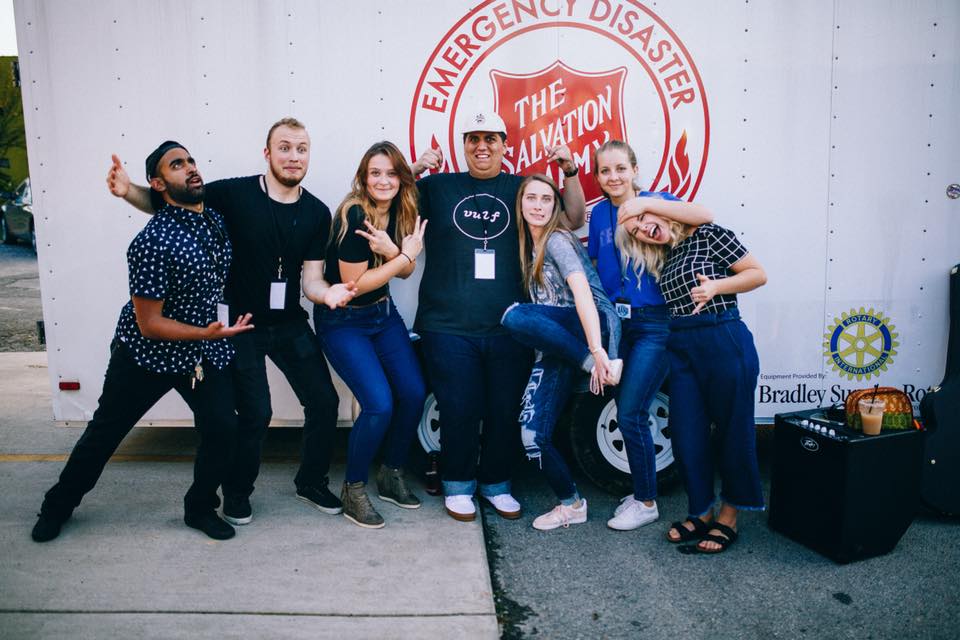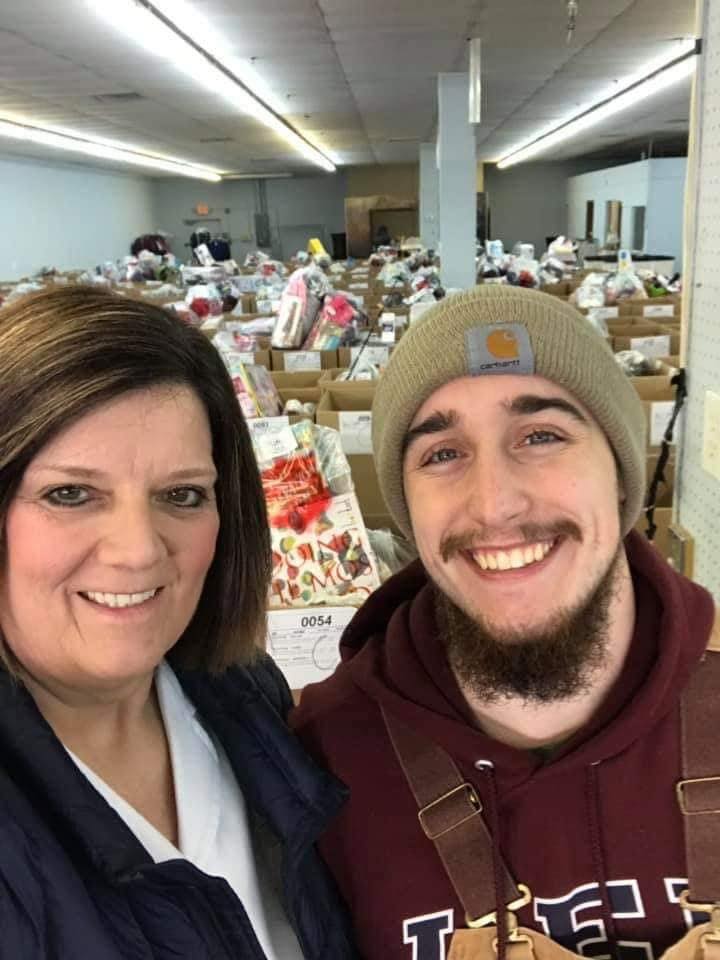DISCIPLE: Empowering Future Leaders Can Change the World

Sergeant Ruth “Ruthie” Forgey is the corps administrator for the Cleveland Corps in Tennessee. Born and raised in Cleveland, Sergeant Ruthie left in the early 1990’s, moving 30 miles north to Chattanooga, and said she would never go back. When she left Cleveland, she also left “organized ministry,” choosing to instead focus on her career in addictions counselling. She claims she “was on a long prodigal journey” in her spiritual life.
“I came back to the Lord in 2004 and really felt compelled to reach out to people like me who were prodigals who felt like they had gone so far,” Sergeant Ruthie says. She also felt a call to full-time ministry and began to pray that God would show her the way to fulfill that call.
When the economic recession hit the country in 2008 her counselling practice took a big hit. In looking for options to supplement her income for the Christmas season she found an online advertisement for Kettle Coordinator and Angel Tree positions. She initially applied for the Angel Tree position, but because she had fundraising experience, she received a call about kettles. “And I took the position. I fell in love with my bell ringers that year and really the mission of the Army.”
“And partway through that season, Major Lawrence approached me and said, ‘Hey, I’ve been praying for the Lord to send me somebody to develop a corps in Cleveland, and I think you may be the girl.’” She and her teenage son took the weekend to pray about it and felt immediate peace. “I called Major Lawrence that next Monday morning and said, ‘Yeah, I’ll do it.’”
At the end of Kettle season, Sergeant Ruthie became a corps planter, starting the project off by calling her bell ringers to attend a Bible study run out of their Family Store. “And that’s how we began.”
The Cleveland Corps is definitely not a traditional corps. The building mainly consists of a large multifunctional room that every day at noon becomes a cafeteria feeding the homeless or anyone who needs a hot meal. On Sunday mornings the room becomes a chapel. It has been a concert hall, a board room, a social services center, a warming shelter, and a staging area for disaster response efforts. “It’s just a large room that we can transform to be what we need it to be in a matter of minutes.”
The corps also has their Inman Coffee House ministry which Sergeant Ruthie says has become a sort of community center for the Cleveland Corps. “It’s been the place that we’ve been able to offer to our youth and young adults who come in and have just found a place to fit in and belong.” Started back in 2012, the corps utilizes the coffee house for weekly youth and children’s programs, young adult ministry, and Bible studies.
Sergeant Ruthie tells us that corps members and soldiers have been attracted to the corps through disaster service, Angel Tree, as well as through the coffee shop. “Some of our younger adults have come into the coffee shop just for a concert and then they go, ‘Okay, what’s going on in the other side of the building?’”

One of the ways the Cleveland Corps is combating a growing culture of consumerism in Christianity today is by reminding corps attendees that the church is not the building. “When you leave here on Sunday mornings or after a youth service, you take this gospel back into your individual worlds,” she says. “The church leaves the building every time we walk out the door.” They encourage corps members to make ministry personal, keeping them engaged in the mission rather than simply consuming Sunday services.
The Cleveland Corps focuses on a relational ministry method to spark change in their community, “giving people a place to feel like they belong. And then when they get in and settle in, begin to look for, through conversation, through observation what some of their gifts and talents may be and where they would feel comfortable.”
The coffee house ministry has developed a three-tiered program for leadership that youth can apply for by age 14. The young people first have to provide references and go through an interview process to become a student leader, giving them real-life interview skills. They then start at the ground level, spending about 125 hours learning about leadership, coffee, and how to keep the shop clean. In the second level they serve behind the counter, logging another 125 hours learning to operate a point-of-sale system and gaining customer service skills. The third tier of the program is to identify a need in their community and a resource to fill it. Sergeant Ruthie says, “Once they finish those hours, they have a marketable skill, and they have some great experience.”
One of the first student interns in their program was on a track team, running downtown every week, where she befriended a lady she always saw sleeping on a bench. They would have breakfast together every Tuesday, and through their conversations the student learned that there were no food options for the homeless in the area on weekends. “Because of that, this young lady went to her family, and they began to get together with some other churches, civic organizations, came into our kitchen and began to make lunch.” And from that initial effort the corps still has lunch every Saturday and breakfast and dinner on Sundays for the homeless. “That was a direct result of our student leadership program.”
An estimated 200-plus students have participated in this leadership program, causing countless ripples of Kingdom impact across the globe. “One of our very first baristas is serving [as a missionary] in Cambodia now,” Sergeant Ruthie says. “He started a similar coffee house ministry in Cambodia as he teaches people how to grow their own food and have community.” They have former students in England, Taiwan, and all over the United States. They can literally see the impact of their ministry on the world.
“Discipleship and leadership, it’s not always convenient,” Sergeant Ruthie claims. “Being willing to be inconvenienced…is crucial. It’s a commitment to that individual to walk with them while they find their own legs and feel empowered.”
To learn more about the Inman Coffee House ministry and their student leadership development program, visit inmancoffee.com.
